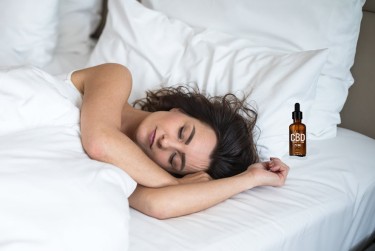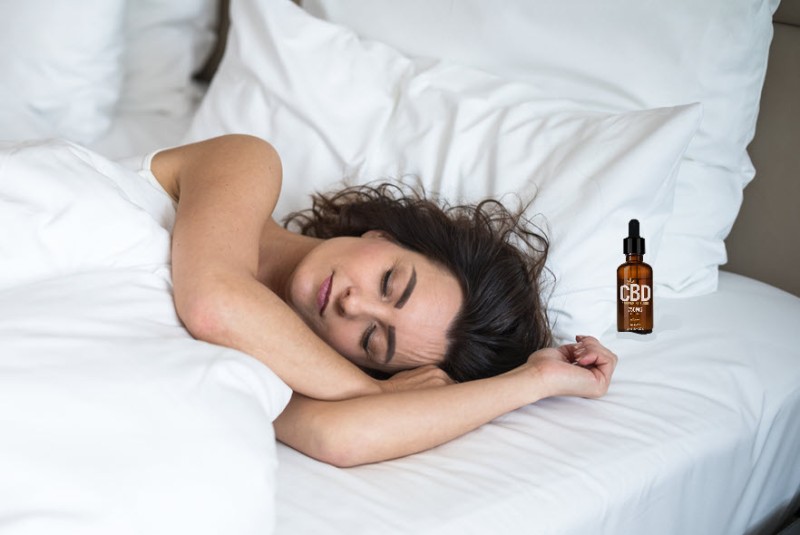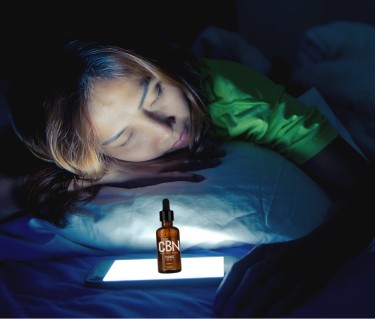
Studies Say That Low Dose CBD Is Best For Sleep
Results Are At Par With Melatonin
There are many reasons why more people are consuming CBD to help with better quality of life.
One of the most popular benefits of non-psychoactive cannabidiol (CBD) is its ability to relax and induce sleep. Most adults need to get 7 to 9 hours of sleep regularly; it’s critical for wellness and our overall health. Yet, too many adults struggle to fall or stay asleep because of anxiety, depression, work. Even other lifestyle factors can affect your sleep, such as consuming too much caffeine or alcohol, excessive use of devices or computers, or exercising too close to bedtime.
CBD is widely available in many forms though capsules, oils, tinctures, and edibles are certainly the most ideal way to medicate for sleep. These come in an array of doses, from 5mg and up, which has been shown to be effective in helping adults get much-needed rest.
There is countless anecdotal evidence of this on the internet, but are there studies to back it up?
Yes there are.
In fact, among the latest of these studies states that low dose CBD could be just as effective as melatonin for sleep. Researchers from the Scripps Clinic Sleep Center in San Diego together with UCLA investigators sought out to analyze how different CBD dosages fared when compared to melatonin for sleep quality. Almost 1,800 American adults participated in the study.
The results, which were published in the medical journal, Journal of the American Nutrition Association, reveals that using 15mg of CBD everyday alone or with other cannabinoids such as cannabinol and cannabichromene, was effective in improving the sleep quality of study participants. They also found that the quality of sleep was similar to the results when one medicates with melatonin. The researchers found no major differences among the participants who took CBD with minor cannabinoids and those who took CBD only.
“There were also no significant differences in effect between 15mg CBD isolate and formulations containing 5mg melatonin, alone or in combination with 15mg CBD and 15mg CBN,” the authors wrote.
“Most participants across all formulations experienced a clinically important improvement in their sleep quality… Our findings suggest that chronic use of a low dose of CBD is safe and could improve sleep quality, though these effects do not exceed that of 5mg melatonin,” concluded the study’s authors.
Melatonin vs. CBD
Melatonin is a sleep hormone that is secreted by the human body as a response to darkness. Melatonin production is critical for helping us regulate the circadian rhythm, or the internal clock that tells us when it’s time to rise and when we should be sleeping. Aside from these, melatonin also plays other important roles in the body, which is why it’s become a common over-the-counter supplement.
Many adults around the world rely on melatonin to help them fall asleep. However, it isn’t advisable to take melatonin for the long term. That’s because the body produces its own melatonin but the production of melatonin is disrupted by lifestyle factors mentioned earlier. Supplementing with melatonin can help the body recalibrate the proper production of melatonin, but using it for the long term can cause the natural production of it to drop in the body.
Furthermore, even if melatonin can help with sleep, a great deal of people who take it struggle with side effects. Severe daytime drowsiness is one of the most common side effects of melatonin; others experience dizziness and headaches. Aside from these, there are no adverse effects associated with melatonin.
Those who have experienced the efficacy of CBD for sleep prefer it to melatonin, and it’s easy to see why. CBD is recommended for individuals who struggle with anxiety and stress, two factors that can prevent long, restful sleep. On the other hand, melatonin can be ideal for those who simply want to reduce the time it takes to fall asleep – this is referred to medically as sleep latency.
For people who have a tough time sleeping, CBD is safe for daily use. It can even help with its other health benefits such as reducing anxiety, stress, and inflammation.
In addition, CBD is a great alternative to melatonin because not only is it safer to use for the long term, but it’s excellent for people who are looking for a plant-based option. Just be wary of the CBD products you choose to use, since there are hundreds of different types out there, many of which are not yet regulated by the FDA. It’s best to purchase CBD from well-known and reputable brands, so be sure to do your research ahead of time. There are also some supplements that combine CBD and melatonin, in case this is something you want to try for the short term.
Conclusion
While both CBD and melatonin are effective for sleep, CBD is much safer to take in the long term. That said, it’s also important for individuals to improve sleep hygiene in order to better your sleep quality. There are things you can do such as reducing screen time exposure an hour before you intend to go to sleep, reducing your caffeine intake past noon, keeping your bedroom in cool temperatures for comfort.
When you do your part to improve your sleep hygiene, you will certainly need a smaller dosage of CBD to help you sleep. It will also contribute in making you feel more well rested the following day.






